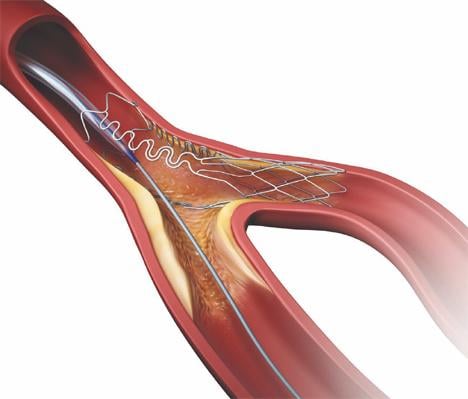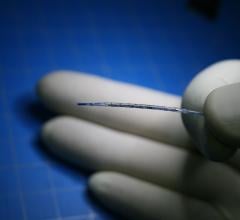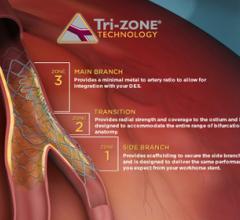September 18, 2014 — A new study found that fractional flow reserve (FFR)-guided provisional side branch (SB) stenting ...
Stents Bifurcation
Patients with coronary artery disease where a lesion is located at a vessel bifurcation and extends into the side branch can be difficult to treat in a cath lab. The conventional treatment for bifurcations is to either used a single stent and leaving part of the vessel untreated, or use of two stents. Use of two stents can "cage" or "jail" the side branch vessel because of the stent struts in the main vessel. This might prevent future access to treat the side branch vessel. This channel offers news on bifurcation treatment strategies and development of dedicated side branch stents.
September 16, 2014 — Tryton Medical Inc. announced that the first patient in the United States has been enrolled in the ...
September 9, 2014 — Tryton Medical Inc. announced an initial closing of an aggregate $20 million private equity ...
August 7, 2014 — Tryton Medical Inc. announced that the first patient has been enrolled in the EXTENDED Access Registry ...

Stenting of lesions at coronary vessel bifurcations is one of the most challenging percutaneous interventions ...

 September 18, 2014
September 18, 2014

